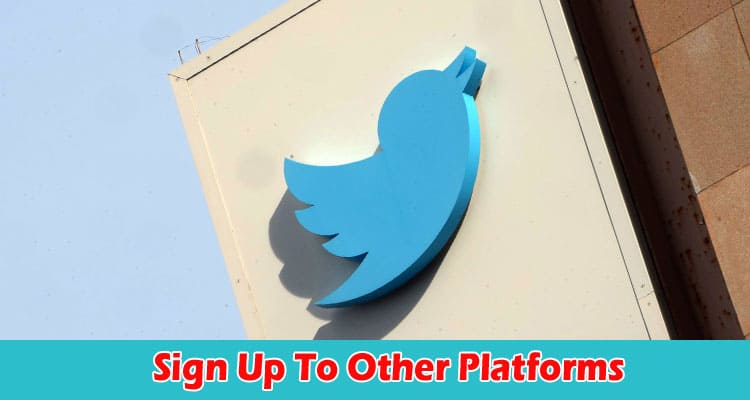It’s no secret that Twitter – or X, as new owner Elon Musk apparently wants us to call it – is undergoing something of a seismic change right now.
Although Twitter’s core functionality remained pretty similar from its inception through to Musk’s purchase – and, indeed, is still generally the same service – Musk is changing so much that it can feel like Twitter is an entirely new platform from day to day.
Whether it’s the removal of headlines from shared news articles or the deletion of the block function, Twitter is looking less and less like the reliable, dependable social media platform it’s been for the last decade or so.
With that in mind, you might be wondering whether you should leave Twitter and sign up to other platforms, especially if you’re an influencer or a brand. Here’s our rundown on whether Twitter is still worth it, and where you should go instead (or perhaps as well as!).
Other platforms are still on the rise
It’s worth remembering that Twitter is far from the only social media platform, and it never has been. Other platforms exist, and they have incredibly strong user bases that are just waiting for new content to thrill them.
TikTok, for instance, is a great platform to sign up to for brands and influencers alike, and it might make a good haven if Twitter does eventually implode, although the two apps are fundamentally different.
Building a base on TikTok might be a little harder than doing so on Twitter, though, so don’t be afraid to get yourself some free followers on TikTok so that you can get a headstart on this competitive app.
Other apps you can check out include Instagram, which is owned by Facebook parent company Meta, and, of course, Facebook itself, which, despite dwindling popularity among younger demographics, is still a supremely popular app.
Twitter alternatives are coming thick and fast
As Elon Musk’s handling of Twitter began to generate controversy, it didn’t take long for Twitter alternatives to start springing up, many of them promising the kind of heady freedom that Twitter offered in its earliest days.
Perhaps the most promising of these alternatives is Bluesky, a platform masterminded in part by Twitter co-founder Jack Dorsey.
Bluesky’s unique selling point is its openness; the service is very similar to Twitter, but it’s decentralised and open source, which means that users can easily see and modify its code if they wish to.
Other alternatives include Mastodon, which essentially collects a lot of mini-networks into a single platform (it’s a little more complicated than that, but that’s the outline), and Threads, which is Meta’s alternative to Twitter.
When Threads was first released, it amassed a huge number of users seemingly overnight, but that user base has begun to dwindle now, although Threads is still introducing new features in an attempt to keep up with Twitter.
Whether or not any of these Twitter alternatives actually take off in a big way remains to be seen, but the fact is that if you want a Twitter-esque experience and you don’t want to be on Twitter, you’ve got plenty of options.
Twitter is still hugely popular
It may not be time to jump ship just yet, however. The fact is that Twitter remains massively popular, and anyone who prophesies doom for the app is doomsaying, at least for now.
Supposedly, Twitter is losing users, despite owner Elon Musk’s claims to the contrary. Although Musk has proclaimed that he’s making changes to Twitter in the name of free speech, it seems like users are shrinking away from the new, more lawless Twitter.
Despite that, Twitter was so immensely popular even before Musk bought it that the monthly active user count is likely still sky-high. Even a loss of 10% of Twitter’s web traffic would leave it with millions upon millions of daily active users, and so you’re still going to have a captive audience on Twitter, even if it ends up a shell of its former self.
There is, of course, also the argument that being on Twitter as an influencer or a brand is essentially free, and that there’s really no downside to signing up until the platform has basically zero users, which is very unlikely to happen in the near future.
In short, if you’re looking to create Twitter content and you want to know whether it’s worth signing up to Twitter for that reason, the answer is a resounding “yes, for now”.
What will Twitter look like in five years?
The question that is on many people’s lips now is whether Twitter has any long-term viability under Musk’s reign.
It’s difficult to know exactly what Musk has planned for Twitter, or whether it will even resemble itself in a few years’ time. Of course, the app isn’t even technically called Twitter anymore; on smartphones, it’s been renamed to X, and all of Twitter’s branding has been replaced with Musk’s controversial X branding as well.
The web address for the platform still contains the word “Twitter”, but it remains to be seen just how long that will be the case as well.
It could be that in five years, Twitter will be so unrecognisable that it simply won’t be a viable prospect for brands or influencers anymore, and they’ll need to branch out to other platforms.
For now, though, if you want to reach the widest audience possible, it’s still a good idea to have a Twitter page.







